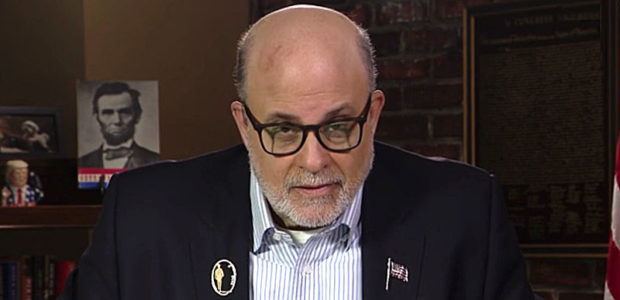


Mark Levin just wrote that any US-Iran nuclear deal under President Trump (or any president) must be submitted to the US Senate for ratification via the treaty clause in the Constitution, and he explains why.
ANY U.S.-IRAN NUCLEAR DEAL MUST BE SUBMITTED TO THE SENATE
ARTICLE II, SEC. 2, CL. 5 is referred to as the Treaty Clause of the Constitution. It states, in relevant part:
“The President … shall have Power, by and with the Advice and Consent of the Senate, to make Treaties, provided two thirds of the Senators present concur …”
Whether the Treaty Clause is an independent grant of power compelling the shared role of a supermajority of the Senate (two thirds of the senators present when a treaty is taken up) in making international agreements or an extension of already existing executive power with a role for the Senate is of no consequence to me. Either way, both the text and intentions of the Framers were: 1. to underscore the president’s power to negotiate treaties; 2. to deviate from separation of powers in that the Senate would determine whether such treaties were to be adopted; and 3. most importantly, to involve the broader body politic in agreements with foreign governments given concerns about conferring essential sovereign powers and representational authorities to other countries. In short, international agreements were much too important to leave to one person — a president.
The Treaty Clause should be one in which the so-called anti-globalists, isolationists, and constitutionalists not only agree but celebrate. Yet, we have heard virtually nothing about the necessity of any agreement with Iran being submitted to the Senate for its advice, consent, or rejection. Indeed, the Treaty Clause should be endorsed by all parts of the political spectrum.
That said, far too often, especially in the last half-century, presidents have relied on “executive agreements,” with or without the consent of Congress, to sidestep the Constitution’s treaty process. At times the argument is even persuasive, e.g., one of immediacy and necessity in which time is of the essence and national security threats are imminent. Even then, long-term or permanent agreements are to be avoided. Indeed, without a treaty, executive agreements can be altered or altogether dropped by a president, assuming no statutory limitations (however, even statutory limitations can raise significant constitutional questions, which are not the subject of this short essay). However, when a treaty is being negotiated over a period of time, there really is no excuse for excluding the Senate from the outset, such as keeping key senior members updated with the negotiations. It is also in the best interest of an administration to do so.
This is not to say that all government-to-government or international agreements rise to the level of a treaty. Of course, this raises the question: which do and do not? It is more practical and relevant to determine the import and impact of any such arrangement on society to find an appropriate answer. Thus, let’s look at the matter at hand: another nuclear deal with the terror state of Iran.
Whatever constitutional standard exists for submitting a negotiated agreement to the Senate under Article II, Sec. 2, Cl. 5, two points are clear: 1. The Constitution’s language is as broad as it gets, meaning there is at least an assumption that these agreements are to be approved by a supermajority of senators present — that is, it is the rule for which exceptions must be made and defended; and 2. a nuclear deal with Iran, which daily threatens the annihilation of the United States, has violated the existing nuclear deal (although we withdrew from the agreement most of the rest of the world did not); and is also developing long-range missiles to attack our country with nuclear warheads, clearly falls into the category of agreements of the utmost import and urgency requiring treaty ratification. Indeed, if it does not, then nothing does.
This was the position of a vast majority of Senate Republicans in 2015, when Barack Obama negotiated the first nuclear deal with Iran. They insisted the deal was a treaty. The Senate Democrats insisted it was not. Obama had no hope of getting it approved as a treaty. What resulted was a strange bill that, in essence, gave Obama what he wanted, a bad deal, but with tepid congressional oversight and possible intervention. Nonetheless, Obama was required to receive congressional input and defend what he had negotiated in the light of day. President Trump was able to pull out of the deal with the signing of a pen (incidentally, a pen that he handed me, and which hangs on the wall in our home). If the Obama deal had been a treaty, it is not clear that President Trump could have so easily dropped it.
I completely agree. This is the way it was supposed to be in 2015 and it’s the way it should be now. Just like in 2015, I don’t see how any treaty with Iran of this magnitude would make it through the Senate with a 2/3rds majority, especially with Democrats voting down anything and everything Trump.
